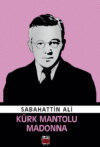Kitabı oku: «The Portrait of a Lady — Volume 2», sayfa 12
After Pansy had been led away, she found Lord Warburton drawing near her again. She rested her eyes on him steadily; she wished she could sound his thoughts. But he had no appearance of confusion. “She has promised to dance with me later,” he said.
“I’m glad of that. I suppose you’ve engaged her for the cotillion.”
At this he looked a little awkward. “No, I didn’t ask her for that. It’s a quadrille.”
“Ah, you’re not clever!” said Isabel almost angrily. “I told her to keep the cotillion in case you should ask for it.”
“Poor little maid, fancy that!” And Lord Warburton laughed frankly. “Of course I will if you like.”
“If I like? Oh, if you dance with her only because I like it—!”
“I’m afraid I bore her. She seems to have a lot of young fellows on her book.”
Isabel dropped her eyes, reflecting rapidly; Lord Warburton stood there looking at her and she felt his eyes on her face. She felt much inclined to ask him to remove them. She didn’t do so, however; she only said to him, after a minute, with her own raised: “Please let me understand.”
“Understand what?”
“You told me ten days ago that you’d like to marry my stepdaughter. You’ve not forgotten it!”
“Forgotten it? I wrote to Mr. Osmond about it this morning.”
“Ah,” said Isabel, “he didn’t mention to me that he had heard from you.”
Lord Warburton stammered a little. “I—I didn’t send my letter.”
“Perhaps you forgot that.”
“No, I wasn’t satisfied with it. It’s an awkward sort of letter to write, you know. But I shall send it to-night.”
“At three o’clock in the morning?”
“I mean later, in the course of the day.”
“Very good. You still wish then to marry her?”
“Very much indeed.”
“Aren’t you afraid that you’ll bore her?” And as her companion stared at this enquiry Isabel added: “If she can’t dance with you for half an hour how will she be able to dance with you for life?”
“Ah,” said Lord Warburton readily, “I’ll let her dance with other people! About the cotillion, the fact is I thought that you—that you—”
“That I would do it with you? I told you I’d do nothing.”
“Exactly; so that while it’s going on I might find some quiet corner where we may sit down and talk.”
“Oh,” said Isabel gravely, “you’re much too considerate of me.”
When the cotillion came Pansy was found to have engaged herself, thinking, in perfect humility, that Lord Warburton had no intentions. Isabel recommended him to seek another partner, but he assured her that he would dance with no one but herself. As, however, she had, in spite of the remonstrances of her hostess, declined other invitations on the ground that she was not dancing at all, it was not possible for her to make an exception in Lord Warburton’s favour.
“After all I don’t care to dance,” he said; “it’s a barbarous amusement: I’d much rather talk.” And he intimated that he had discovered exactly the corner he had been looking for—a quiet nook in one of the smaller rooms, where the music would come to them faintly and not interfere with conversation. Isabel had decided to let him carry out his idea; she wished to be satisfied. She wandered away from the ball-room with him, though she knew her husband desired she should not lose sight of his daughter. It was with his daughter’s pretendant, however; that would make it right for Osmond. On her way out of the ball-room she came upon Edward Rosier, who was standing in a doorway, with folded arms, looking at the dance in the attitude of a young man without illusions. She stopped a moment and asked him if he were not dancing.
“Certainly not, if I can’t dance with her!” he answered.
“You had better go away then,” said Isabel with the manner of good counsel.
“I shall not go till she does!” And he let Lord Warburton pass without giving him a look.
This nobleman, however, had noticed the melancholy youth, and he asked Isabel who her dismal friend was, remarking that he had seen him somewhere before.
“It’s the young man I’ve told you about, who’s in love with Pansy.”
“Ah yes, I remember. He looks rather bad.”
“He has reason. My husband won’t listen to him.”
“What’s the matter with him?” Lord Warburton enquired. “He seems very harmless.”
“He hasn’t money enough, and he isn’t very clever.”
Lord Warburton listened with interest; he seemed struck with this account of Edward Rosier. “Dear me; he looked a well-set-up young fellow.”
“So he is, but my husband’s very particular.”
“Oh, I see.” And Lord Warburton paused a moment. “How much money has he got?” he then ventured to ask.
“Some forty thousand francs a year.”
“Sixteen hundred pounds? Ah, but that’s very good, you know.”
“So I think. My husband, however, has larger ideas.”
“Yes; I’ve noticed that your husband has very large ideas. Is he really an idiot, the young man?”
“An idiot? Not in the least; he’s charming. When he was twelve years old I myself was in love with him.”
“He doesn’t look much more than twelve to-day,” Lord Warburton rejoined vaguely, looking about him. Then with more point, “Don’t you think we might sit here?” he asked.
“Wherever you please.” The room was a sort of boudoir, pervaded by a subdued, rose-coloured light; a lady and gentleman moved out of it as our friends came in. “It’s very kind of you to take such an interest in Mr. Rosier,” Isabel said.
“He seems to me rather ill-treated. He had a face a yard long. I wondered what ailed him.”
“You’re a just man,” said Isabel. “You’ve a kind thought even for a rival.”
Lord Warburton suddenly turned with a stare. “A rival! Do you call him my rival?”
“Surely—if you both wish to marry the same person.”
“Yes—but since he has no chance!”
“I like you, however that may be, for putting your self in his place. It shows imagination.”
“You like me for it?” And Lord Warburton looked at her with an uncertain eye. “I think you mean you’re laughing at me for it.”
“Yes, I’m laughing at you a little. But I like you as somebody to laugh at.”
“Ah well, then, let me enter into his situation a little more. What do you suppose one could do for him?”
“Since I have been praising your imagination I’ll leave you to imagine that yourself,” Isabel said. “Pansy too would like you for that.”
“Miss Osmond? Ah, she, I flatter myself, likes me already.”
“Very much, I think.”
He waited a little; he was still questioning her face. “Well then, I don’t understand you. You don’t mean that she cares for him?”
A quick blush sprang to his brow. “You told me she would have no wish apart from her father’s, and as I’ve gathered that he would favour me—!” He paused a little and then suggested “Don’t you see?” through his blush.
“Yes, I told you she has an immense wish to please her father, and that it would probably take her very far.”
“That seems to me a very proper feeling,” said Lord Warburton.
“Certainly; it’s a very proper feeling.” Isabel remained silent for some moments; the room continued empty; the sound of the music reached them with its richness softened by the interposing apartments. Then at last she said: “But it hardly strikes me as the sort of feeling to which a man would wish to be indebted for a wife.”
“I don’t know; if the wife’s a good one and he thinks she does well!”
“Yes, of course you must think that.”
“I do; I can’t help it. You call that very British, of course.”
“No, I don’t. I think Pansy would do wonderfully well to marry you, and I don’t know who should know it better than you. But you’re not in love.”
“Ah, yes I am, Mrs. Osmond!”
Isabel shook her head. “You like to think you are while you sit here with me. But that’s not how you strike me.”
“I’m not like the young man in the doorway. I admit that. But what makes it so unnatural? Could any one in the world be more loveable than Miss Osmond?”
“No one, possibly. But love has nothing to do with good reasons.”
“I don’t agree with you. I’m delighted to have good reasons.”
“Of course you are. If you were really in love you wouldn’t care a straw for them.”
“Ah, really in love—really in love!” Lord Warburton exclaimed, folding his arms, leaning back his head and stretching himself a little. “You must remember that I’m forty-two years old. I won’t pretend I’m as I once was.”
“Well, if you’re sure,” said Isabel, “it’s all right.”
He answered nothing; he sat there, with his head back, looking before him. Abruptly, however, he changed his position; he turned quickly to his friend. “Why are you so unwilling, so sceptical?” She met his eyes, and for a moment they looked straight at each other. If she wished to be satisfied she saw something that satisfied her; she saw in his expression the gleam of an idea that she was uneasy on her own account—that she was perhaps even in fear. It showed a suspicion, not a hope, but such as it was it told her what she wanted to know. Not for an instant should he suspect her of detecting in his proposal of marrying her step-daughter an implication of increased nearness to herself, or of thinking it, on such a betrayal, ominous. In that brief, extremely personal gaze, however, deeper meanings passed between them than they were conscious of at the moment.
“My dear Lord Warburton,” she said, smiling, “you may do, so far as I’m concerned, whatever comes into your head.”
And with this she got up and wandered into the adjoining room, where, within her companion’s view, she was immediately addressed by a pair of gentlemen, high personages in the Roman world, who met her as if they had been looking for her. While she talked with them she found herself regretting she had moved; it looked a little like running away—all the more as Lord Warburton didn’t follow her. She was glad of this, however, and at any rate she was satisfied. She was so well satisfied that when, in passing back into the ball-room, she found Edward Rosier still planted in the doorway, she stopped and spoke to him again. “You did right not to go away. I’ve some comfort for you.”
“I need it,” the young man softly wailed, “when I see you so awfully thick with him!”
“Don’t speak of him; I’ll do what I can for you. I’m afraid it won’t be much, but what I can I’ll do.”
He looked at her with gloomy obliqueness. “What has suddenly brought you round?”
“The sense that you are an inconvenience in doorways!” she answered, smiling as she passed him. Half an hour later she took leave, with Pansy, and at the foot of the staircase the two ladies, with many other departing guests, waited a while for their carriage. Just as it approached Lord Warburton came out of the house and assisted them to reach their vehicle. He stood a moment at the door, asking Pansy if she had amused herself; and she, having answered him, fell back with a little air of fatigue. Then Isabel, at the window, detaining him by a movement of her finger, murmured gently: “Don’t forget to send your letter to her father!”
CHAPTER XLIV
The Countess Gemini was often extremely bored—bored, in her own phrase, to extinction. She had not been extinguished, however, and she struggled bravely enough with her destiny, which had been to marry an unaccommodating Florentine who insisted upon living in his native town, where he enjoyed such consideration as might attach to a gentleman whose talent for losing at cards had not the merit of being incidental to an obliging disposition. The Count Gemini was not liked even by those who won from him; and he bore a name which, having a measurable value in Florence, was, like the local coin of the old Italian states, without currency in other parts of the peninsula. In Rome he was simply a very dull Florentine, and it is not remarkable that he should not have cared to pay frequent visits to a place where, to carry it off, his dulness needed more explanation than was convenient. The Countess lived with her eyes upon Rome, and it was the constant grievance of her life that she had not an habitation there. She was ashamed to say how seldom she had been allowed to visit that city; it scarcely made the matter better that there were other members of the Florentine nobility who never had been there at all. She went whenever she could; that was all she could say. Or rather not all, but all she said she could say. In fact she had much more to say about it, and had often set forth the reasons why she hated Florence and wished to end her days in the shadow of Saint Peter’s. They are reasons, however, that do not closely concern us, and were usually summed up in the declaration that Rome, in short, was the Eternal City and that Florence was simply a pretty little place like any other. The Countess apparently needed to connect the idea of eternity with her amusements. She was convinced that society was infinitely more interesting in Rome, where you met celebrities all winter at evening parties. At Florence there were no celebrities; none at least that one had heard of. Since her brother’s marriage her impatience had greatly increased; she was so sure his wife had a more brilliant life than herself. She was not so intellectual as Isabel, but she was intellectual enough to do justice to Rome—not to the ruins and the catacombs, not even perhaps to the monuments and museums, the church ceremonies and the scenery; but certainly to all the rest. She heard a great deal about her sister-in-law and knew perfectly that Isabel was having a beautiful time. She had indeed seen it for herself on the only occasion on which she had enjoyed the hospitality of Palazzo Roccanera. She had spent a week there during the first winter of her brother’s marriage, but she had not been encouraged to renew this satisfaction. Osmond didn’t want her—that she was perfectly aware of; but she would have gone all the same, for after all she didn’t care two straws about Osmond. It was her husband who wouldn’t let her, and the money question was always a trouble. Isabel had been very nice; the Countess, who had liked her sister-in-law from the first, had not been blinded by envy to Isabel’s personal merits. She had always observed that she got on better with clever women than with silly ones like herself; the silly ones could never understand her wisdom, whereas the clever ones—the really clever ones—always understood her silliness. It appeared to her that, different as they were in appearance and general style, Isabel and she had somewhere a patch of common ground that they would set their feet upon at last. It was not very large, but it was firm, and they should both know it when once they had really touched it. And then she lived, with Mrs. Osmond, under the influence of a pleasant surprise; she was constantly expecting that Isabel would “look down” on her, and she as constantly saw this operation postponed. She asked herself when it would begin, like fire-works, or Lent, or the opera season; not that she cared much, but she wondered what kept it in abeyance. Her sister-in-law regarded her with none but level glances and expressed for the poor Countess as little contempt as admiration. In reality Isabel would as soon have thought of despising her as of passing a moral judgement on a grasshopper. She was not indifferent to her husband’s sister, however; she was rather a little afraid of her. She wondered at her; she thought her very extraordinary. The Countess seemed to her to have no soul; she was like a bright rare shell, with a polished surface and a remarkably pink lip, in which something would rattle when you shook it. This rattle was apparently the Countess’s spiritual principle, a little loose nut that tumbled about inside of her. She was too odd for disdain, too anomalous for comparisons. Isabel would have invited her again (there was no question of inviting the Count); but Osmond, after his marriage, had not scrupled to say frankly that Amy was a fool of the worst species—a fool whose folly had the irrepressibility of genius. He said at another time that she had no heart; and he added in a moment that she had given it all away—in small pieces, like a frosted wedding-cake. The fact of not having been asked was of course another obstacle to the Countess’s going again to Rome; but at the period with which this history has now to deal she was in receipt of an invitation to spend several weeks at Palazzo Roccanera. The proposal had come from Osmond himself, who wrote to his sister that she must be prepared to be very quiet. Whether or no she found in this phrase all the meaning he had put into it I am unable to say; but she accepted the invitation on any terms. She was curious, moreover; for one of the impressions of her former visit had been that her brother had found his match. Before the marriage she had been sorry for Isabel, so sorry as to have had serious thoughts—if any of the Countess’s thoughts were serious—of putting her on her guard. But she had let that pass, and after a little she was reassured. Osmond was as lofty as ever, but his wife would not be an easy victim. The Countess was not very exact at measurements, but it seemed to her that if Isabel should draw herself up she would be the taller spirit of the two. What she wanted to learn now was whether Isabel had drawn herself up; it would give her immense pleasure to see Osmond overtopped.
Several days before she was to start for Rome a servant brought her the card of a visitor—a card with the simple superscription “Henrietta C. Stackpole.” The Countess pressed her finger-tips to her forehead; she didn’t remember to have known any such Henrietta as that. The servant then remarked that the lady had requested him to say that if the Countess should not recognise her name she would know her well enough on seeing her. By the time she appeared before her visitor she had in fact reminded herself that there was once a literary lady at Mrs. Touchett’s; the only woman of letters she had ever encountered—that is the only modern one, since she was the daughter of a defunct poetess. She recognised Miss Stackpole immediately, the more so that Miss Stackpole seemed perfectly unchanged; and the Countess, who was thoroughly good-natured, thought it rather fine to be called on by a person of that sort of distinction. She wondered if Miss Stackpole had come on account of her mother—whether she had heard of the American Corinne. Her mother was not at all like Isabel’s friend; the Countess could see at a glance that this lady was much more contemporary; and she received an impression of the improvements that were taking place—chiefly in distant countries—in the character (the professional character) of literary ladies. Her mother had been used to wear a Roman scarf thrown over a pair of shoulders timorously bared of their tight black velvet (oh the old clothes!) and a gold laurel-wreath set upon a multitude of glossy ringlets. She had spoken softly and vaguely, with the accent of her “Creole” ancestors, as she always confessed; she sighed a great deal and was not at all enterprising. But Henrietta, the Countess could see, was always closely buttoned and compactly braided; there was something brisk and business-like in her appearance; her manner was almost conscientiously familiar. It was as impossible to imagine her ever vaguely sighing as to imagine a letter posted without its address. The Countess could not but feel that the correspondent of the Interviewer was much more in the movement than the American Corinne. She explained that she had called on the Countess because she was the only person she knew in Florence, and that when she visited a foreign city she liked to see something more than superficial travellers. She knew Mrs. Touchett, but Mrs. Touchett was in America, and even if she had been in Florence Henrietta would not have put herself out for her, since Mrs. Touchett was not one of her admirations.
“Do you mean by that that I am?” the Countess graciously asked.
“Well, I like you better than I do her,” said Miss Stackpole. “I seem to remember that when I saw you before you were very interesting. I don’t know whether it was an accident or whether it’s your usual style. At any rate I was a good deal struck with what you said. I made use of it afterwards in print.”
“Dear me!” cried the Countess, staring and half-alarmed; “I had no idea I ever said anything remarkable! I wish I had known it at the time.”
“It was about the position of woman in this city,” Miss Stackpole remarked. “You threw a good deal of light upon it.”
“The position of woman’s very uncomfortable. Is that what you mean? And you wrote it down and published it?” the Countess went on. “Ah, do let me see it!”
“I’ll write to them to send you the paper if you like,” Henrietta said. “I didn’t mention your name; I only said a lady of high rank. And then I quoted your views.”
The Countess threw herself hastily backward, tossing up her clasped hands. “Do you know I’m rather sorry you didn’t mention my name? I should have rather liked to see my name in the papers. I forget what my views were; I have so many! But I’m not ashamed of them. I’m not at all like my brother—I suppose you know my brother? He thinks it a kind of scandal to be put in the papers; if you were to quote him he’d never forgive you.”
“He needn’t be afraid; I shall never refer to him,” said Miss Stackpole with bland dryness. “That’s another reason,” she added, “why I wanted to come to see you. You know Mr. Osmond married my dearest friend.”
“Ah, yes; you were a friend of Isabel’s. I was trying to think what I knew about you.”
“I’m quite willing to be known by that,” Henrietta declared. “But that isn’t what your brother likes to know me by. He has tried to break up my relations with Isabel.”
“Don’t permit it,” said the Countess.
“That’s what I want to talk about. I’m going to Rome.”
“So am I!” the Countess cried. “We’ll go together.”
“With great pleasure. And when I write about my journey I’ll mention you by name as my companion.”
The Countess sprang from her chair and came and sat on the sofa beside her visitor. “Ah, you must send me the paper! My husband won’t like it, but he need never see it. Besides, he doesn’t know how to read.”
Henrietta’s large eyes became immense. “Doesn’t know how to read? May I put that into my letter?”
“Into your letter?”
“In the Interviewer. That’s my paper.”
“Oh yes, if you like; with his name. Are you going to stay with Isabel?”
Henrietta held up her head, gazing a little in silence at her hostess. “She has not asked me. I wrote to her I was coming, and she answered that she would engage a room for me at a pension. She gave no reason.”
The Countess listened with extreme interest. “The reason’s Osmond,” she pregnantly remarked.
“Isabel ought to make a stand,” said Miss Stackpole. “I’m afraid she has changed a great deal. I told her she would.”
“I’m sorry to hear it; I hoped she would have her own way. Why doesn’t my brother like you?” the Countess ingenuously added.
“I don’t know and I don’t care. He’s perfectly welcome not to like me; I don’t want every one to like me; I should think less of myself if some people did. A journalist can’t hope to do much good unless he gets a good deal hated; that’s the way he knows how his work goes on. And it’s just the same for a lady. But I didn’t expect it of Isabel.”
“Do you mean that she hates you?” the Countess enquired.
“I don’t know; I want to see. That’s what I’m going to Rome for.”
“Dear me, what a tiresome errand!” the Countess exclaimed.
“She doesn’t write to me in the same way; it’s easy to see there’s a difference. If you know anything,” Miss Stackpole went on, “I should like to hear it beforehand, so as to decide on the line I shall take.”
The Countess thrust out her under lip and gave a gradual shrug. “I know very little; I see and hear very little of Osmond. He doesn’t like me any better than he appears to like you.”
“Yet you’re not a lady correspondent,” said Henrietta pensively.
“Oh, he has plenty of reasons. Nevertheless they’ve invited me—I’m to stay in the house!” And the Countess smiled almost fiercely; her exultation, for the moment, took little account of Miss Stackpole’s disappointment.
This lady, however, regarded it very placidly. “I shouldn’t have gone if she had asked me. That is I think I shouldn’t; and I’m glad I hadn’t to make up my mind. It would have been a very difficult question. I shouldn’t have liked to turn away from her, and yet I shouldn’t have been happy under her roof. A pension will suit me very well. But that’s not all.”
“Rome’s very good just now,” said the Countess; “there are all sorts of brilliant people. Did you ever hear of Lord Warburton?”
“Hear of him? I know him very well. Do you consider him very brilliant?” Henrietta enquired.
“I don’t know him, but I’m told he’s extremely grand seigneur. He’s making love to Isabel.”
“Making love to her?”
“So I’m told; I don’t know the details,” said the Countess lightly. “But Isabel’s pretty safe.”
Henrietta gazed earnestly at her companion; for a moment she said nothing. “When do you go to Rome?” she enquired abruptly.
“Not for a week, I’m afraid.”
“I shall go to-morrow,” Henrietta said. “I think I had better not wait.”
“Dear me, I’m sorry; I’m having some dresses made. I’m told Isabel receives immensely. But I shall see you there; I shall call on you at your pension.” Henrietta sat still—she was lost in thought; and suddenly the Countess cried: “Ah, but if you don’t go with me you can’t describe our journey!”
Miss Stackpole seemed unmoved by this consideration; she was thinking of something else and presently expressed it. “I’m not sure that I understand you about Lord Warburton.”
“Understand me? I mean he’s very nice, that’s all.”
“Do you consider it nice to make love to married women?” Henrietta enquired with unprecedented distinctness.
The Countess stared, and then with a little violent laugh: “It’s certain all the nice men do it. Get married and you’ll see!” she added.
“That idea would be enough to prevent me,” said Miss Stackpole. “I should want my own husband; I shouldn’t want any one else’s. Do you mean that Isabel’s guilty—guilty—?” And she paused a little, choosing her expression.
“Do I mean she’s guilty? Oh dear no, not yet, I hope. I only mean that Osmond’s very tiresome and that Lord Warburton, as I hear, is a great deal at the house. I’m afraid you’re scandalised.”
“No, I’m just anxious,” Henrietta said.
“Ah, you’re not very complimentary to Isabel! You should have more confidence. I’ll tell you,” the Countess added quickly: “if it will be a comfort to you I engage to draw him off.”
Miss Stackpole answered at first only with the deeper solemnity of her gaze. “You don’t understand me,” she said after a while. “I haven’t the idea you seem to suppose. I’m not afraid for Isabel—in that way. I’m only afraid she’s unhappy—that’s what I want to get at.”
The Countess gave a dozen turns of the head; she looked impatient and sarcastic. “That may very well be; for my part I should like to know whether Osmond is.” Miss Stackpole had begun a little to bore her.
“If she’s really changed that must be at the bottom of it,” Henrietta went on.
“You’ll see; she’ll tell you,” said the Countess.
“Ah, she may not tell me—that’s what I’m afraid of!”
“Well, if Osmond isn’t amusing himself—in his own old way—I flatter myself I shall discover it,” the Countess rejoined.
“I don’t care for that,” said Henrietta.
“I do immensely! If Isabel’s unhappy I’m very sorry for her, but I can’t help it. I might tell her something that would make her worse, but I can’t tell her anything that would console her. What did she go and marry him for? If she had listened to me she’d have got rid of him. I’ll forgive her, however, if I find she has made things hot for him! If she has simply allowed him to trample upon her I don’t know that I shall even pity her. But I don’t think that’s very likely. I count upon finding that if she’s miserable she has at least made him so.”
Henrietta got up; these seemed to her, naturally, very dreadful expectations. She honestly believed she had no desire to see Mr. Osmond unhappy; and indeed he could not be for her the subject of a flight of fancy. She was on the whole rather disappointed in the Countess, whose mind moved in a narrower circle than she had imagined, though with a capacity for coarseness even there. “It will be better if they love each other,” she said for edification.
“They can’t. He can’t love any one.”
“I presumed that was the case. But it only aggravates my fear for Isabel. I shall positively start to-morrow.”
“Isabel certainly has devotees,” said the Countess, smiling very vividly. “I declare I don’t pity her.”
“It may be I can’t assist her,” Miss Stackpole pursued, as if it were well not to have illusions.
“You can have wanted to, at any rate; that’s something. I believe that’s what you came from America for,” the Countess suddenly added.
“Yes, I wanted to look after her,” Henrietta said serenely.
Her hostess stood there smiling at her with small bright eyes and an eager-looking nose; with cheeks into each of which a flush had come. “Ah, that’s very pretty c’est bien gentil! Isn’t it what they call friendship?”
“I don’t know what they call it. I thought I had better come.”
“She’s very happy—she’s very fortunate,” the Countess went on. “She has others besides.” And then she broke out passionately. “She’s more fortunate than I! I’m as unhappy as she—I’ve a very bad husband; he’s a great deal worse than Osmond. And I’ve no friends. I thought I had, but they’re gone. No one, man or woman, would do for me what you’ve done for her.”




















